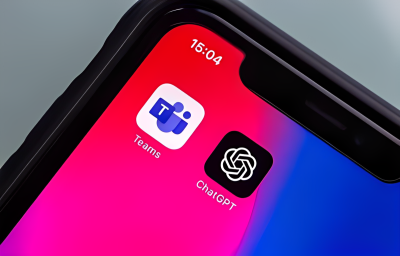Highlights:
- DeepL, a company located in Cologne, Germany, has announced a fresh fundraising round estimated to be in excess of USD 100 million.
- The latest investment brings the company’s worth to above one billion dollars. The business did not disclose the entire amount raised.
DeepL, a company located in Cologne, Germany, has announced a fresh fundraising raise estimated to be more than USD 100 million. The company aims to target business clients with its Artificial Intelligence (AI)-powered language translation services. Language translation is becoming an increasingly vital function for businesses operating across several locations and demographic groups.
For decades, services such as Google Translate have provided users basic language translation features. The difficulty, however, has been enabling more complex translations for commercial use cases that capture the exact word with the appropriate tone and context. AI-powered language translation is beginning to influence this domain.
DeepL was founded in 2017 and has steadily utilized deep neural networks to enhance its technology. The latest investment brings the company’s worth to above one billion dollars. The business did not disclose the entire amount raised.
While Jaroslaw “Jarek” Kutylowski, CEO of DeepL, is evasive about the exact financing amount, he is quite clear about how the money will be utilized. As the firm expands, he stated that it would invest more in core AI research, develop new product areas, and increase its enterprise client portfolio.
The AI-powered translation trend is booming
In the earlier days of language translation, rudimentary pattern-matching approaches were used.
A user may, for instance, enter “hello” into a database that matches it with its counterpart in another language, such as French (“bonjour”). However, the fundamental semantic components of pattern matching are not scalable for large-scale translations in which context and tone are important.
DeepL is among numerous companies utilizing advanced AI approaches to translate human language more accurately. In recent years, Google has improved its Google Translate service using various methods, including deploying a Recurrent Neural Network (RNN).
Microsoft has been continuously enhancing its Azure Translator service using AI models, which the firm believes increases quality overall. Meta (formerly known as Facebook) is also joining the party, launching its Universal Speech Translator (UST) project driven by AI in October 2022.
Deep neural network approach for translation
DeepL has built a language translation engine that infers accurate translations using Neural Networks (NN).
According to the business, it employs a revolutionary NN architecture to comprehend the subtle meanings of words and sentences and to express them in a target language.
Kutylowski said, “We do not disclose the details of our translation technology, but can say that as a company we’ve always been pushing the boundaries of how neural networks are designed to maximize translation quality.”
Kutylowski underlined that the firm’s original objective was to eliminate linguistic barriers and that the company continues to concentrate on this issue.
Kutylowski further said, “In the beginning we understood this vision as being very strongly tied to translation specifically. As we develop further as a company we see us using the underlying technology to help humans to communicate also in other ways — with new products that facilitate communication.”
Enterprise Challenges during Translation
DeepL intends to provide adequate solutions to overcome a variety of translation-related obstacles.
Kutylowski stated that the world becomes more interconnected every year, which increases the significance of language translation and communication. Approaches to localization, in his opinion, may need to be more active and capable of scaling with this expanding need.
Kutylowski said, “Tools like DeepL allow the end user, whether in the marketing, legal or any other team, to communicate across borders and publish material directly, without the need for reaching out to specialized teams or hiring. That creates totally new opportunities.”














